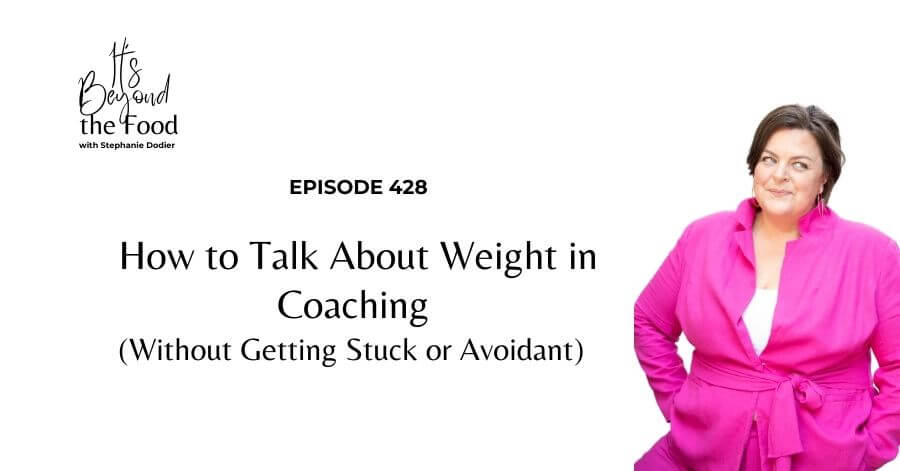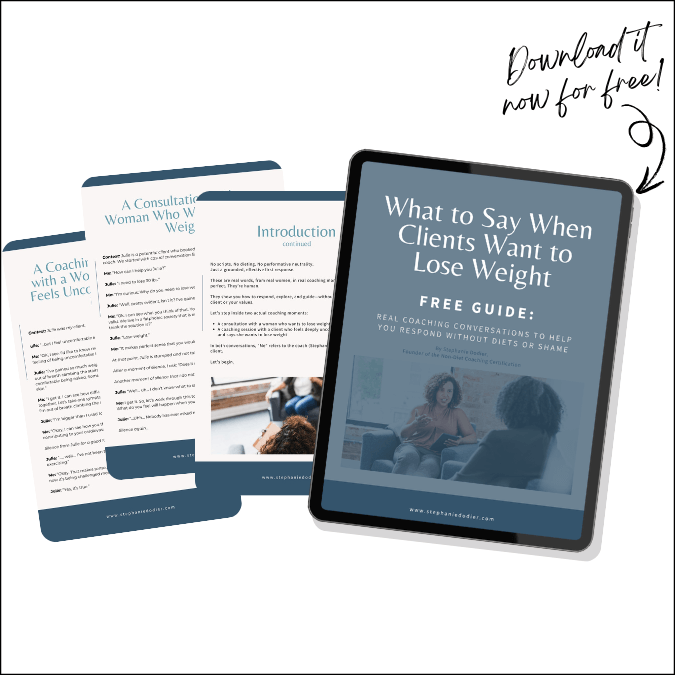

When a client says, “But I need to lose weight,” how do you respond? If you’re a coach, therapist, nutritionist, or health professional committed to a weight-neutral, non-diet approach, you’ve probably felt that moment of tension. Your client has just introduced a deeply conditioned belief, and you’re not sure how to move forward without either avoiding the topic or resorting to over-explaining.
In this episode of the It’s Beyond the Food Podcast, I guide you through how to talk about weight in coaching—a skill that is essential, powerful, and too often overlooked in training programs.
Whether you’re just starting or have years under your belt, this conversation will equip you to hold safe, compassionate, and empowering conversations around weight with your clients. It’s time we stop sidestepping these moments and instead use them as openings for transformation.
What You’ll Learn in This Episode on How to Talk About Weight in Coaching:
How to stop avoiding weight conversations in your coaching sessions
Why over-intellectualizing weight talk can harm clients
The questions that open the door to deeper client discovery
How to shift from external solutions to internal clarity
Mentioned in the show:
Non-Diet Coaching Certification Waitlist
Non-Diet Coaching Client Assessment Tool





